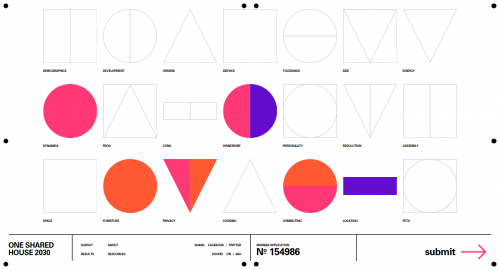One shared house 2030. How will we live in the year 2030?

welcome to the year 2030.
there are 1.2 billion more people on the planet.
70% of us are living in cities now.
in order to house 1.2 billion more people,
all of us are sharing more household goods and services than ever before.
we refer to this sharing as co-living.
and many more of us are living this way now.
but it’s not a new thing.
communal living has always been a solution to common problems.
like rapid urbanisation, loneliness, and high living costs.
but what does co-living look like in the year 2030?
who is it for?
how has it changed our society?
what are we sharing?
with many more of us now co-living,
there is no one configuration.
discover what type of co-living would be uniquely suited for you.
reserve your spot for ONE SHARED HOUSE 2030.
